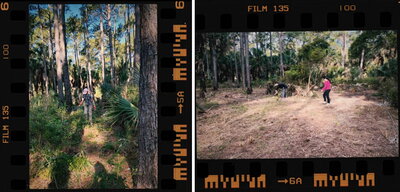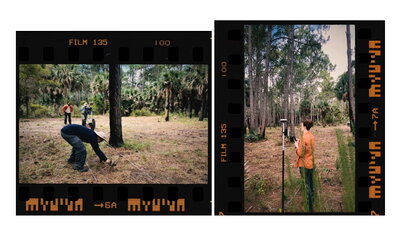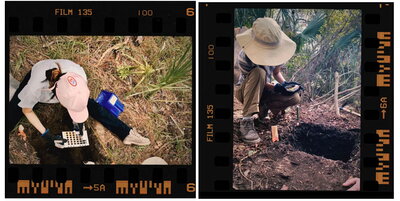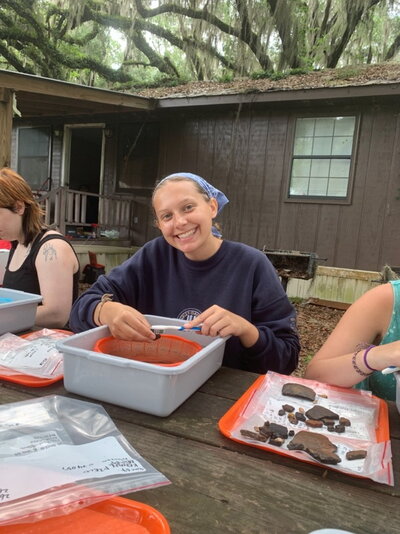
This page was last updated January 2025.
Department Undergraduate Awards
Honors Research Proposal (Thesis Writing)
Awardees
| Year | Recipient |
|---|---|
| 1996 | Kathy Altom |
| 1997 | Erin Gingrich |
| 1998 | Jeanie Bianchi, Carrie Donovan |
| 1999 | Chris DiTomo, Michael Powell, Sarah Scheiderich |
| 2001 | Katheryn Barnes, Claire Dappert, Sarah Erekson, Rachel Balabuscko, Brian Starmach, Sara Zamor, Michael Litchford, Mireya Loza |
| 2002 | Tamira Brennan, Joseph Bruce, Heather Foran, Michael Litchford, Meghan Moran, Lauren Szczensky-Pumarada |
Patricia O'Brien Award
2025 Competition
The Patricia O'Brien Award will be presented this spring to the students who submit a superior undergraduate anthropology paper. Any undergraduate anthropology major or minor is eligible to enter. This year, the award includes a prize of $1500 for each of the two winners. Papers will be judged based on excellence, demonstrated through problem focus, clarity of argument, and overall contribution to the field. development of ideas, literature covered, writing style, originality, and contribution to the field. Papers will be judged by the department's Awards Committee consisting of faculty members from all the field's subdisciplines. At the committee's discretion, an outside reviewer may be asked to assist in the evaluation of a particular entry. Oral evaluation of the candidates to determine the winner is optional and at the discretion of the committee.
Papers must be submitted no later than 5:00pm, Friday, April 11, 2025. Papers must be submitted electronically to Joyce Dowell at joyce14@illinois.edu. The papers must be cleanly typed, and the format should be as appropriate for professional journals such as American Anthropologist, American Antiquity, or American Journal of Physical Anthropology. The paper must be anthropological in subject matter and approach. Senior Capstone, Senior honor theses, course research papers, fieldwork analyses, and independent projects are all acceptable entries. The paper must have been written or substantially developed while the student has been at the University of Illinois and not to exceed 35 pages.
The Patricia O'Brien Award Committee will announce the winner via email. The winner will be announced at the Department Awards Spring Banquet on Thursday, May 1rst. If you have any questions regarding the competition, do not hesitate to contact me (jelinek@illinois.edu). We strongly encourage you to submit a paper to the competition and wish you the best of success if you do!
General Information
This award is presented to the student who submits a superior undergraduate anthropology paper. Any undergraduate anthropology major or minor may enter. Undergrad students are notified to submit papers during the spring semester award season.
Papers will be judged based on excellence as demonstrated by problem focus, development of ideas, literature covered, writing style, originality, and contribution to the field. Papers are chosen by the Department Awards Committee consisting of faculty members from all field subdisciplines. At the committee's discretion, an outside reviewer may be asked to assist in the evaluation of a particular entry. Oral evaluation of the candidates to determine the winner is optional and at the discretion of the committee. The papers must be cleanly typed, and the format should be as appropriate for professional journals such as American Anthropologist, American Antiquity, or American Journal of Physical Anthropology. The paper must be anthropological in subject matter and approach. Senior honor theses, course research papers, fieldwork analyses, and independent projects are all acceptable entries. The paper must have been written or substantially developed while the student has been at the University of Illinois, not to exceed 35 pages.
History of the Patricia J. O'Brien Award, written by Amy Wedel: Patricia J. O’Brien was born on April 1, 1935, in Chicago, Illinois to John P. O’Brien and Edna M. Massow. She attended Nicholas Senn High School, graduating in 1953, and then worked at the Illinois Bell Telephone Company as a plant engineering clerk from 1953 to 1960. Concurrently, Pat attended Wright Junior College and graduated in 1960 with an associate’s degree in art. She then attended the University of Illinois, graduating with a bachelor’s of art in anthropology in 1962 and a Ph.D. in the same subject in 1969. Her dissertation was, “A Formal Analysis of Cahokia Ceramics: Powell Tract”. O’Brien was an interim anthropology instructor at Florida Atlantic University in 1966-1967, and became an assistant professor of archeology and sociology at Kansas State University (KSU) in September 1967. O’Brien worked at KSU for 31 years, retiring as a professor emerita in 1998. She has published seven books and over forty articles, and has presented regularly while at KSU. She has been involved professionally, including in the American Anthropological Association, the American Association for the Advancement of Science, and Sigma Xi. In 1989-1990, O’Brien was an Honor Lecturer at the Mid-American State Universities Association, and the following year she received the Conoco Distinguished Graduate Faculty Award and Sigma Xi deemed her a Distinguished Research Lecturer. She was a Fulbright Senior Lecturer in 1994-1995 at Würzburg, Germany, and was a guest professor in 1996 at Munich, Germany. In 2009, the Plains Anthropological Society recognized her lifetime achievement of Plains-related research, teaching, scholarship, and service by awarding O'Brien with the Distinguished Service Award.
Awardees
| Year | Recipient |
|---|---|
| 1985 | Jolee West |
| 1986 | Becky Gordon |
| 1989 | Kathy To |
| 1990 | Laura M. Oaks |
| 1991 | Richard R. Lawler |
| 1992 | Paul Blomgrem |
| 1993 | Leahanne Sarla |
| 1994 | Charles W. Golden, Tally M. Moskovits (co-recipients) |
| 1995 | Oscar Newman, Elizabeth Garibay (co-recipients) |
| 1996 | Michael Cepek |
| 1997 | Kevin Karpiak, Megan Casey |
| 1998 | Kevin Karpiak |
| 1999 | Chris DiTomo |
| 2000 | Nicholas Watkins |
| 2002 | Tamira Brennan |
| 2003 | Nichole Ortegon |
| 2004 | Danielle Schumacher |
| 2005 | Susanne Garrett |
| 2006 | Toni Sadler |
| 2008 | Annelise Morris |
| 2009 | Robert Mackin |
| 2010 | Susan Wachowski |
| 2011 | Rachel Zibrat, Audrey Gallien (co-recipients) |
| 2012 | Danielle Cunningham |
| 2013 | Anna Lowe |
| 2014 | Taylor Thorton |
| 2015 | Paige Jamieson |
| 2016 | Ciara Reilly, Amirah Nasir (co recipients) |
| 2017 | Alia Kirsch, America Guerra |
| 2018 | Julia Carter |
| 2019 | Caroline Caton |
| 2020 | Harold Adams, Priya Bhatt |
| 2021 | Celeste Courtney |
| 2023 | Lisa Chasanov |
Charles J. Bareis Award - Illinois Archaeology
This award is given for outstanding accomplishments and achievements in North American Archaeology. Priority is given to undergraduate students working on questions, materials, and sites that relate to the archaeology of Illinois to support undergraduate research and career development. Undergrad students are notified to submit papers during the spring semester award season.
Applications must include a CV for the nominee and a 1–2-page faculty letter of support describing the significance of the research for the student's intellectual development as well as for the understanding of North American archaeology in general, and Illinois archaeology in particular.
This award is chosen by the Anthropology Department Awards Committee.
Awardees
| Year | Recipient |
|---|---|
| 2002 | Michael Litchford |
| 2003 | Susan Alt |
| 2005 | Philip Millhouse |
| 2006 | Dan Marovitch |
| 2007 | Liz Watts |
| 2011 | Kelsey Anderson, Melissa Baltus (co-recipients) |
| 2012 | Leslie Drane |
| 2013 | Jamie Cater |
| 2014 | Mechell Frazier |
| 2016 | Mikayla Eastman |
| 2018 | Brandon Nakashima |
| 2023 | Rachelle Burdette |
Liebman Engaged Anthropology Internship, Field School, and Research Award
Graciously endowed by alumnus Paul Liebman, this fund supports undergraduate internships, research, and field school experience in anthropology. If you have any questions, please contact Dr. Petra Jelinek at jelinek@illinois.edu.
Eligibility
- This award is open to all undergraduate anthropology majors, minors, and CS+ Anth. Preference will be given to first-time applicants in good academic standing.
Award Amount:
- Up to $2500
Priority Deadlines
January 19th, annually: Liebman Award for spring funding (For students based on senior capstone projects, and possibly juniors working on an applied anthropology project in conjunction with a faculty member.)
March 1st and April 1st , and May 1st based on fund availability: Liebman Award for summer funding
Application Forms
Recommended Field Schools
Resources
Sample Budgets
Awardees
| Year | Name - Project |
|---|---|
| 2024 | Ariel Cuochon – Valley of Peace archaeology field school in Belize (with Dr. Lisa Lucero); Makenna Long - Michigan Technological University Delaware Mine Field School; Gabrielle Wolf – Valley of Peace archaeology field school (with Dr. Szremski, UIUC ); Annabelle Okite - Valley of Peace archaeology field school in Belize (with Dr. Lisa Lucero); Jaydn Hicks – Zooarchaeology internship in Dr. Kate Bishop’s lab; Zuzanna Cieply - Zooarchaeology internship in Dr. Kate Bishop’s lab |
| 2023 | Abril Stoddard – Global medical training UIUC, Dominican Republic, Dawn Pagel - University of Illinois Island and Coastal Archaeology Summer Field School, Julia Fasick - Sanisera archaeology program, Menorca, Spain, Justine Dioneda - University of Illinois Island and Coastal Archaeology Summer Field School, Layla Eyegabroad - University of Illinois Island and Coastal Archaeology Summer Field School, Leah Williams - Wild Sun Rescue wildlife biology internship Costa Rica, Lily Lisnic – Incoronata field school through the University of Michigan and University of Rennes, Christopher Levine – Lough Key archeological project through St. Louis University, Connor Uphues - University of Illinois Island and Coastal Archaeology Summer Field School (with Dr. Brandon Ritchison), Dawn Pagel - University of Illinois Island and Coastal Archaeology Summer Field School (with Dr. Brandon Ritchison); Emma Perry - University of Illinois Island and Coastal Archaeology Summer Field School (with Dr. Brandon Ritchison); Kenneth Caselberry - University of Illinois Island and Coastal Archaeology Summer Field School; Krysztof Piekosz - University of Illinois Island and Coastal Archaeology Summer Field School ; Ruskin Hovde - University of Illinois Island and Coastal Archaeology Summer Field School; Xueyi Lu - University of Illinois Island and Coastal Archaeology Summer Field School |
| 2022 Summer | Ayal Zipris, Brooke Blaszynski, Varson Van Wassenhove, Hailey Olsen, Izabel Acosta, Jocelyn Rubi, Kenneth Caselberry, Lilliana Velez, Lily Lisnic, Maddie Woods |
| 2022 Spring | Jorge Corral – Mayanizando Radiowaves in CU (Mayan Languages on the Move internship with Dr. Kora Maldonado) |
| 2021 Spring | Sophia Sato, Israel Gomez Raffoul, Courtney |
| 2021 Summer | Miles Ury, Sun, Gradilla, Edgar Vea, Brooke Blaszynski, Christian Hasler, Rachel Burdette, Maykayla Muzinic |
| 2020 | Alex Schroeder, Brooke Blaszynski, Edgar Vea, Madeline Wook, Rachel Burdette, Tricia Avent -forensics (field school), Trinity Rosa, Kaiya Clodfelder, Citlali Roman, Hayat Zarzour – indep study for honors with Virginia |
| 2019 | Tricia Avent – forensics (field school), David Gulinski, Ryan Bridge, Yolanda Rivera, Nicole Jennings, Harold Adams- Urbana police, Prisha Bhatt, Rachel Nelson -KAM |
| 2018 | Lauren Jacobsen (research) Wari Archaeological project – field school/research, Amy Copper (internship) Valley of Peace archaeology project (field school w Lisa Lucero), Jacob Heinrich (research) Off the beaten track – Malta (field school), Caylynn Jones (research) 2018 Santos Community Archaeology Project (field school), Brandon Nakashima (research), Frank Nunez, Ella Oliveck, Cecilia Pigozzi, Aaron Stocks, D’Anne Winston |
| 2017 | Kristina Allen, Julia Carter, Jessica Clotfelter (internship) – Bureau of Land Management- archae internship (Utah), Lucio Cristina, Ansley Jones (internship) – Latin American Curatorial Team Collections internship (Field Museum, Chicago), Jay Breckenridge (internship) Dr. Blanke’s lab (registered MCB 290 undergraduate research), Keilyn Kuramitsu, Brandon Nakashima (research) – 2017 Field School in Midwestern Archaeology, Jordan Romanski – (internship) Museum Exhibit History Volunteer Practicum (Spurlock) |
Liebman Engaged Anthropology Student Blogs
Brooke Blaszynski on Kenan Archaeology Field School
My name is Brooke Blaszynski and I am a Junior in Archaeology at the University of Illinois at Urbana-Champaign. I attended this summer’s Field School with Dr. Ritichson on Sapelo Island in Georgia to conduct research at a native site, known as Kenan Field. This site was occupied by a native group, the Guale, prior to Spanish contact. Our research question that we approached during our time at Kenan Field was how immigrants adjust to life and community in the coastal environment.

Regarding pre-contact finds, we primarily engaged with and found an abundance of shell, due to the rich coastal food resources available to the Guale, pottery, and small animal bones. In terms of post-contact, artifacts that we would find included glass, ceramics, and nails. At Kenan Field, we conducted systematic shovel tests, topographic mapping, and shallow geophysical survey. These all entailed preparing, filling out, and completing the proper documentation and recordation while conducting our research.
Our documentation included photographs, drawings, field notes, forms, artifact bags, and more. Recording and preserving the data and information we engaged with in our research was top priority during our field school on Sapelo Island. I am forever grateful for the community of peers I gained on this trip as well as the hands-on experience that prepared me for my pursuing career as an Archaeologist.
Miles Ury on the Kenan Archaeology Field School
I am Miles Ury, a senior at the University of Illinois Champaign-Urbana(UIUC) pursuing a double major in Archaeology and Statistics.
This past summer(2021) I attended a field school run by UIUC that took place at the Kenan Field site on Sapelo Island, Georgia, and was spearheaded by Dr. Ritchison, a professor at the university.
The field school actually existed, was safe in the U.S. despite COVID, was run by my university, and was run by a teacher who I had a positive classroom experience with the previous semester, so choosing to attend it was a no-brainer for me.
The ultimate goal of the field school was to function as a learning experience, but research questions and goals were also taken into consideration. Dr. Ritchison’s research goals included finding evidence of the existence and purposeful placement of household structures in Mississippian culture, as well as further general surveillance of the site using a combination of destructive and nondestructive methodologies.
Each workday was organized, busy, and devoted to education and research. We woke up at 6am and had to be packed and ready to go to the field by 7am. After a bumpy, rambunctious truck ride to the field, we were told what our jobs were for the day and separated into groups of two or three, depending on how many people were needed. We worked from 7:30 to 11:30, had a lunch break, and then worked from 12:00 to 3:00. We put all of our equipment away in the storage trailer before riding in the truck back to our house, the ABAC shack. We then turned in our bags of artifacts and paperwork, to be processed and entered into a database at a later date. The rest of the day was our time to do work or chill, save for fun communal dinners at around 5:30. After some games, movies, interesting conversations, and random wildlife encounters, we all were in bed by 10:00 to prepare for our next workday.
Over the course of five and a half weeks, we learned and practiced a lot of field skills. One of the fundamental skills we learned and practiced was how to perform a shovel test. These are systematically distanced holes with consistent, predetermined dimensions that allow for basic subterranean surveillance. The holes were dug, dirt sifted, and data recorded by level in order to preserve contextual information. I learned the most important fundamentals of archaeological data from these tests. Some examples of this include what shells, pottery, bones, and worked stones look like among a pile of dirt, how to use a variety of digging, measuring, and sifting tools, the information that is useful to record, and why, and what the difference is between a regular assortment of artifacts versus something so interesting and unusual that we had to call the professor over, among other lessons. In the field school there was a club for those who were required to dig a meter into the ground called the meter club. I remember the first time I hit the meter club, we found a large piece of an object around 55 cm into the ground, and we didn’t know what it was because it looked like pottery on the outside but broke like charcoal. After digging down another 20 cm and finding even larger pieces of this object, we called the TA over, and she told us that we had found many rare fragments of Archaic period pottery, which was thousands of years older than the objects we were trying to examine. It stopped occurring eventually, but the artifacts caused us to dig a meter beneath the surface. I remember jokingly complaining about how far we would have to dig and joining the meter club, but it was an amazing experience to find a cultural artifact that was thousands of years old.
We also learned how to dig a unit, which is basically a larger, more careful version of a shovel test. Units were much longer and wider than shovel tests, each level was shallower, and there was more data to record. We learned how to shave the ground instead of simple digging, how to measure using a datum string, how to accurately draw the side or floor of a large hole onto a piece of graph paper, and how to mark any important features that were found within a unit. The unit built on skills from the shovel test, with quite a few extra steps since we believed that the likelihood something significant would be found there was higher.
We had a general idea of where artifacts were likely to be found due to the other main thing that we were able to participate in during the summer: running Ground Penetrating Radar(GPR). GPR sends millions of radio waves into the ground and can calculate the depth and relative shape of objects within the earth based on how much time the waves take to bounce back to the machine that sent them. We had to learn the basic science behind it, what kind of objects it could detect, and what kind of data was useful to record. To increase the effectiveness of the GPR, we had to perform another simple but essential skill for archaeology: brush clearing. There was one morning early on in the trip where the 12 undergrads spent four and a half hours chopping down everything that wasn’t grass or a full-blown tree within a 40 by 40-meter square on the island. We each drank 3 liters of water and were exhausted afterward, but it allowed for the radar to be used effectively since there wasn’t any excess vegetation that could alter the GPR data. It also led to the placement of units that ended up possibly yielding household evidence, so the hard work was worth it.
After attending the field school, I can say that it was educationally, philosophically, and socially life changing.
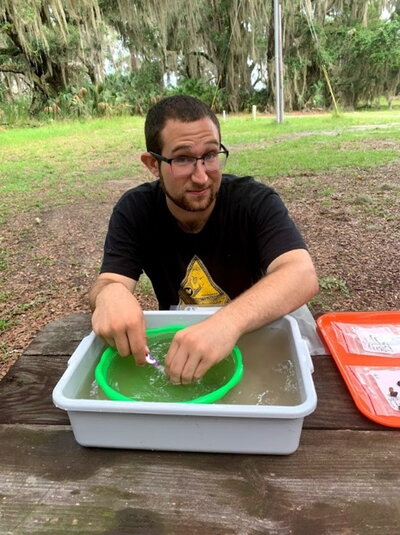
First off, I didn’t even know that Sapelo Island existed, so going from that to learning terminology, settlement and subsistence patterns, and current work was a daunting but fulfilling and immersive task. It was hands-on practice in learning about the holistic picture of a culture from the perspective of an archaeological researcher.
I went from knowing nothing about the practical aspects of archaeological data collection to being confident enough in the foundations to make informed decisions on my own in the field. I feel like I could show up to any type of basic survey in America and understand most of the terminology and objectives of a project after one or two explanations.
I further understood the types of questions archaeologists ask and work together on as a team, as well as learned about many ways that different people engage with and are passionate about archaeology. The opportunity to converse with peers as well as mentors on the field school gave me insight into how people think about their work, the solution mindsets of different people, and caused me to rethink my passions and skills in archaeology.
I learned essential team working and living skills, and had experiences that transformed a group of bright-eyed, mildly acquainted undergrads into lifelong friends. For a historically inadequate group project member such as myself coming out of a year where group activities were impossible due to COVID, this experience reinvigorated my spirit of learning and communication.
The field school provided me with knowledge, skills, and networks of people that would have been otherwise impossible; it will certainly impact the rest of my life and made me more excited to be involved in the archaeological world.
Sofia Sato on the Liebman Engaged Anthropology Award
Sophia Sato (pictured at the upper left) is a senior who received a Liebman Undergraduate Internship Award for the Spring 2021 semester. She worked closely with Dr. Korinta Maldonado as an intern for Indigenous Languages on the Move, which is a language justice and interpreters collective in the Urbana-Champaign area.
This is what she had to say about her experience: “I am so grateful for having been selected as a Spring Internship Fellow and awarded a grant graciously funded by the Paul A. Liebman Foundation. I had volunteered for the collective during the Fall 2020 semester and was able to take on more duties and increase my time commitment due to alleviated financial stress. During my time as a fellow, I served as the website creator and communication liaison. I was able to get firsthand experience on how important it is to include the communities we are walking with in everything we do, every step of the way. Our goal is not to speak for the communities, but rather, to create a space for their voices to be heard and recognized. Through our efforts, we have managed to expand the collective to better meet the needs of the communities”.
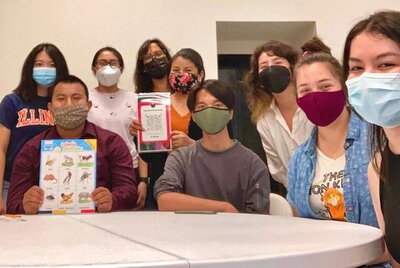
Christian Hasler on the Kenan Archaeology Field School
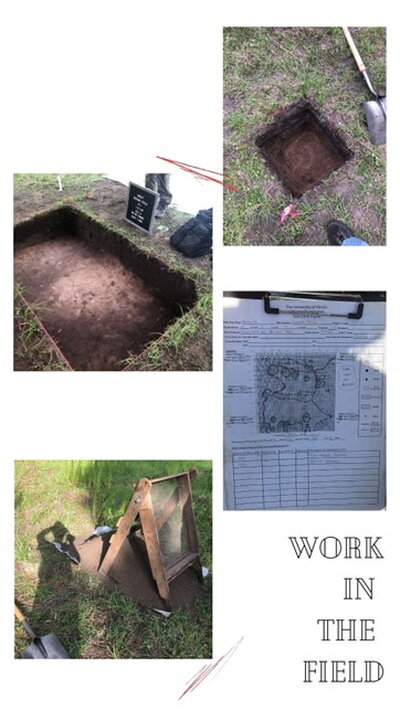
My name is Christian Hasler, and I am an Anthropology major at the University of Illinois Urbana-Champaign. I attended the UIUC Sapelo Island Field School of 2021, and here is a little bit about my experience!
To get to the island, we drove from Davenport Hall to Dalton, GA, then from Dalton to the Sapelo island ferry. Once we got there, we made ourselves comfortable in the ABAC Shack where we stayed for the field school. Here we saw plenty of animal remains, beautiful sunsets on the dock, and had a fun time giving each other haircuts outside! We also learned communal living skills like sharing chores, cooking together, and taking care of our little shack. We had movie nights, reading sessions, and game nights too!
* * *
Of course, we also did a lot of work in the field too. Spare for a few days we couldn’t go out due to rain, we were in the field from 7am to about 2pm or 3pm working on shovel tests, units, Ground Penetrating Radar, and marking points using GPS.
From this work we found many items like pottery sherds, some lithic, bone, and glass. We would dig 20cm down for each level in a shovel test, screen all the dirt, and bag artifacts. We bagged and made tags for each level where artifacts were found and later, we cleaned these artifacts at the shack. In units, we did the same procedure but carefully dug 10cm down for each level. The Ground Penetrating Radar was useful to determine the best locations to place units. Each shovel test and unit had plenty of paperwork to go with it too!
* * *
Overall, I had a great experience at this field school learning new skills and finally using the archaeological techniques I have been learning about during my college education. I made new friends, made lots of memories, and I’m excited to use these skills I’ve learned in more research endeavors!
Makayla Muzinic on her internship with the Frances Nelson Health Center of Promise Healthcare
My name is Makayla Muzinic, and I am a senior double majoring in Anthropology and Integrative Biology. Over this past summer, I was able to intern at the Frances Nelson Health Center of Promise Healthcare in Champaign, IL. I was placed in the prenatal department because I have experience in the Carle NICU, and I was selected as a recipient of the Liebman Engaged Anthropology Award from this university. While this internship was medical based, I was able to apply the many interpersonal skills I’ve gained from taking anthropology classes here. I was able to interact with prenatal patients who spoke a language other than English and who had different cultural influences relating to pregnancy and prenatal care. I spent a large amount of my time with patients, but I also was involved in other separate projects like creating educational materials for families. The biggest anthropological takeaway from this internship was being able to observe new cultures in a healthcare setting which was very interesting and meaningful.
Daniela Gradilla on the Kenan Archaeology Field School
My name is Daniela Gradilla and I am a senior majoring in anthropology with a concentration in archaeology. As many of you know, archaeology students are required to do a field school during their undergrad. I had always wanted to be a part of a field school and to experience what archaeology is all about but with the COVID-19 pandemic, I worried that I wouldn’t have that opportunity. I have always been interested in Native American archaeology and that is why I decided to apply for the UIUC Island and Coastal Archaeology Summer Field School.
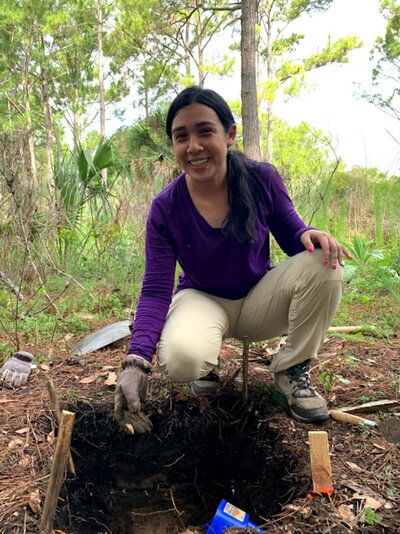
Participating in this field school was one of the best decisions I ever made. Not only did I learn new methods and techniques, but I also met really great people. A field school is something I think every archaeology student should be a part of and the sooner, the better. For some, it may determine whether you actually want to pursue archaeology. When I first thought of field school, I thought of conducting research and digging all day. There is so much more that goes into it. You are living in a new place and interacting with people who share common interests. Not only do you learn about history and archaeology, but you also learn how to work and interact with people. A field school is an experience in so many different ways.
Rachel Burdette on the Kenan Archaeology Field School
Much of our field school was spent digging shovel test units and the proper way to dig these units. We focused heavily on the correct technique to cut walls with shovels to ensure the walls would not collapse and there would be a sturdy structure to continue digging down, as some shovel test units could be dug a meter deep. It also is significant to ensure that no artifacts are missed by cutting the walls to be less than the assigned shovel test unit size. However, these walls are not just important for the structural integrity of the unit or artifact collection, there are also significant for understanding stratigraphy across different levels.
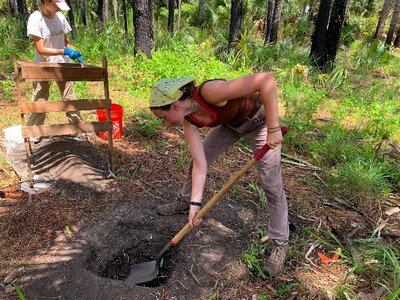
Straight, uniform walls are key in being able to view the different layers of soil and where they change, which helps to understand the soil content of the area. It also helps to differentiate where the sterile layer, or where no artifacts are found, starts. This can be seen in soil color changes, as a layer without any artifacts or natural decomposition will be lighter in color, because it does not have nutrients from decomposition. If the wall is not straight, this can affect the start of different soil layers, and can be inconsistent across the height of the wall. This can create differing interpretations of where soil layers start and end across units, creating inconsistent data within the project. Learning to cut straight, clean walls with the shovel is crucial to digging successful shovel test units.
Jenny Sun reflection on the Kenan Archaeology field school
The field school I attended this summer would be one of the most treasurable memories. This one and half month's experience not only gave me hands-on learning experience in my major archaeology but also offered me a chance to meet lovely people who shared similar interests and passions.
